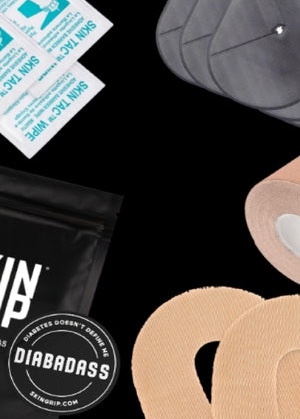
*Disclaimer: All content and information in this blog is for informational and educational purposes only.
When a friend gets diagnosed with diabetes, it brings about new responsibilities and lifestyle changes that can be challenging to navigate. As a friend of someone with diabetes, it’s understandable to want to offer support and assistance during this time, but it can be difficult to know where to start. In this article, we will explore some of the best ways to be there for your friend, from understanding diabetes to practical advice for being a supportive person in your friend’s journey with diabetes.
What is diabetes?
Diabetes is a condition that occurs when the body either cannot produce enough insulin or cannot effectively use the insulin it produces. Insulin is a hormone produced by the pancreas that helps the body convert glucose (sugar) into energy. When there is not enough insulin, or the body cannot use it properly, glucose levels in the blood become elevated. This can lead to a variety of health complications, such as heart disease, nerve damage, kidney damage, and vision problems.
What is type 1 diabetes?
Type 1 diabetes is a chronic condition where the pancreas produces little to no insulin due to the immune system destroying the insulin producing cells of the pancreas. As a result, the body cannot produce sufficient amounts of insulin which is essential for blood glucose regulation and they must take daily insulin injections or use an insulin pump to maintain blood glucose levels within a healthy range.
What is type 2 diabetes?
Type 2 diabetes is a chronic condition in which the body becomes resistant to insulin. Unlike type 1 diabetes, the pancreas in type 2 diabetes usually produces insulin, but the body cannot use it effectively which leads to elevated blood glucose levels. Type 2 diabetes can be managed with lifestyle modifications, such as regular exercise, healthy eating habits, as well as medication or insulin therapy in some cases.
What are the needs of someone with diabetes?
To effectively manage diabetes, individuals have specific needs that must be met. These needs typically involve monitoring blood glucose levels, administering insulin or medication, adhering to a healthy diet, engaging in regular physical activity, and scheduling regular healthcare appointments. By addressing these needs, people with diabetes can better manage their condition and reduce the risk of associated complications.

How do I support a friend with diabetes?
Supporting a friend with diabetes can involve taking several steps to ensure they feel supported and cared for. Firstly, taking the time to learn about diabetes and its management can help you understand what your friend is going through and how you can help. Additionally, knowing the signs of high and low blood sugar levels can help you recognize when your friend may need assistance. Finally, asking your friend what they need from you can be an essential part of being a supportive friend. Whether it's practical help, emotional support, or simply someone to listen to them, showing that you care about their needs can make a big difference in their journey with diabetes.
Educate yourself about diabetes
Accurate information about diabetes is essential because of the many myths surrounding diabetes. To help support your friend with diabetes, it is important to learn as much as you can about the condition. One way to gain knowledge is by accompanying your friend to one of their diabetes appointments or asking if you can attend a diabetes education class with them.
Know the signs of low and high blood sugars
Living with diabetes can be challenging, and having a friend who understands the signs, symptoms, and treatments of high blood sugar (hyperglycemia) and low blood sugar (hypoglycemia) can make all the difference. Diabetes management requires constant vigilance, and it can be exhausting for the person with diabetes to always be on the lookout for potential highs and lows. By learning about the signs and symptoms of these fluctuations and how to provide appropriate treatment, you can offer valuable support to your friend. This can help them feel more comfortable and safe in social situations, knowing that someone they trust is watching out for them.
Signs of high blood sugar:
- Headaches
- Fatigue
- Increased thirst and urination
- Difficulty concentrating
- Irritability & mood changes
Treatment of high blood sugar:
- Check if they’ve taken their medications
- Encourage them to drink plenty of water
- Invite them to go on a walk or engage in an activity
Signs of a low blood sugar
- Sweating
- Shaking or trembling
- Dizziness or lightheadedness
- Confusion & difficulty concentrating
- Irritability & mood changes
- Rapid heartbeat
Treatment of a low blood sugar
- Carry fast-acting sugar and snacks such as candy, juice boxes, and granola bars
- Ask that you receive alerts when their blood sugars are severely low if they wear a CGM
- Learn how to use glucagon injection or nasal spray in case it is needed in an emergency situation
Ask how you can best support them
Each person with diabetes has their own unique needs and preferences. Some may appreciate reminders to check their blood sugar or take medication, while others may find this intrusive. Others may appreciate someone to talk to about their struggles with diabetes or someone to exercise with. By asking your friend how you can best support them, you can ensure that you are providing the support they need in a way that is helpful and respectful.
You have the opportunity to positively impact the life of someone with diabetes by being a source of support and understanding. If you're looking for inspiration on how to be a better friend to someone with diabetes, check out Keeping it 100 Radio: Uncensored Diabetes Conversations- Episode 90: The Supporting the Type One Diabetics in Your Life.. Host Lissie Poyner sits down with her childhood best friend for an intimate and insightful discussion on what it's like to have a friend with diabetes.
Available now on Spotify and Apple Podcasts.
Written By: Amanda Ciprich, MS, RD
Founder of T1D Nutritionist
Website: www.t1dnutritionist.
Instagram: @t1d.nutritionist


















